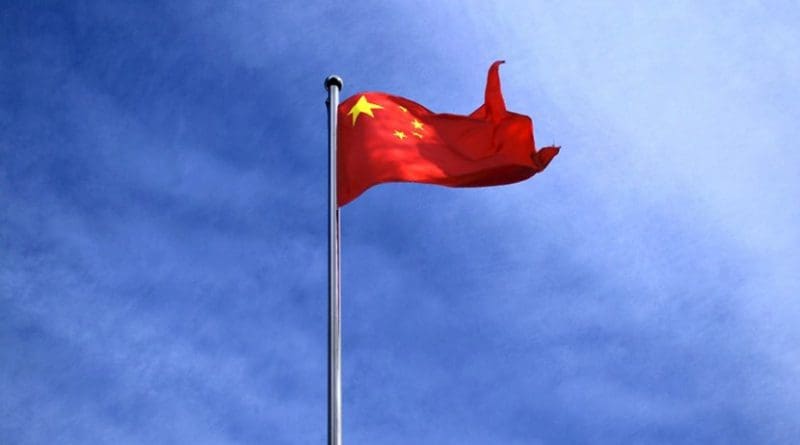Post-Brexit UK Trade Strategy Needs To Engage China – Analysis
By Ken Heydon*
The United Kingdom’s trading aspirations in Asia will not negate its dependence on the European Union, nor will they unwind the dominant economic role of China in its neighbourhood. UK trade with Asia post-Brexit needs to be accompanied by efforts to engage Beijing in the strengthening of trade rules and disciplines.
Following its departure from the European Union, the United Kingdom is intent on pursuing its ‘tilt to the Indo-Pacific’. This includes a free trade agreement (FTA) with Australia that negotiators hope will yield major gains built on shared language and legal systems.
The Australia–UK FTA is notably ambitious in the cutting-edge issues of digital trade and telecommunications, where there is a willingness to go beyond the extensive provisions in the Comprehensive and Progressive Agreement for Trans-Pacific Partnership (CPTPP) in encouraging cross-border data flows.
London sees the Australia–UK agreement as an important step towards UK membership of the CPTPP. UK accession would send a signal to China, which remains outside that agreement and with whom the United Kingdom has fraught relations over Huawei 5G networks and Hong Kong.
UK membership of the CPTPP — reportedly supported by all current members — would also be consistent with UK Prime Minister Boris Johnson’s advocacy of a so-called D10 democratic grouping against China. This arrangement would augment the current G7’s membership with the addition of Australia, India and South Korea.
One way the CPTPP might be seen as serving UK interests in sending a message to Beijing would be by reducing, at the margin, the Asia Pacific’s economic reliance on China. CPTPP rules (the ‘diagonal cumulation’ provisions on rules of origin) could be used to treat EU components of UK products as ‘originating’ and so eligible for preferential treatment. This would help UK goods and services industries develop their existing supply chains across the European Union while trading within the CPTPP.
But here’s the rub. The focus on EU-related trade serves only to underline the importance of the United Kingdom’s trade links with Europe and the stark reality of Brexit. Though the European Union will remain the United Kingdom’s biggest trading partner, downgrading from the Single Market to an EU–UK FTA — with tough rules of origin and limited services cover — will reduce UK trade by some 20 per cent. New FTAs signed by the United Kingdom, beyond the European Union, will increase UK trade by just 5 per cent.
Among those FTAs, that with Australia will be constrained as UK businesses face increased regulatory complexity by having to remain compliant with EU ‘precautionary’ approaches to trade and public health, as well as the more science-based risk assessment of CPTPP regulations. UK farmers will similarly have to adjust to losing roughly half of their income sourced from the EU Common Agricultural Policy.
There is no denying gravity — trade volumes are linked to the size and proximity of one’s partners. So signing trade agreements exclusive of China and forging alliances against Beijing will not deny China’s role as the overriding economic force in Asia. Nor will it improve China’s poor compliance with World Trade Organization (WTO) rules.
This is not to argue against the Australia–UK FTA or UK aspirations to join the CPTPP. The gains are likely to be modest, especially because the European Union is also negotiating with Australia, eroding the value of preferential access for the United Kingdom — but there will be gains.
And the presence of a relatively liberal United Kingdom in Asia Pacific trade arrangements will make it less likely that a state-centric ‘Beijing Consensus’ will ever take hold. But the important requirement is to prevent any ‘contain China’ associations from emerging in these initiatives — they would detract from efforts to engage Beijing in strengthening multilateral trade rules.
This brings us back to the central question of digital trade and electronic commerce. Negotiations currently under way among participating WTO members on e-commerce are doubly important, offering a template for engaging China on trade rules.
First, the negotiations address issues whose importance has been accelerated by the digitalisation effects of the COVID-19 pandemic.
Second, they represent a ‘plurilateral’ initiative that does not require the elusive goal of compliance by all WTO members, while bringing the major players to the negotiating table. This involves both the United States and China, providing a welcome, if incremental, area of cooperation to help temper the inevitable strategic competition unfolding between Washington and Beijing.
An enforceable digital trade agreement under the WTO would create incentives for China (the main proponent of the Digital Silk Road) to improve its domestic governance and strengthen compliance with intellectual property rights. Increasing discipline on issues such as ‘safe harbour’ — a data protection measure suspended from the TPP after Washington’s departure — would also yield tangible welfare gains for the international trading community.
These gains would be achieved with the active engagement of the United Kingdom, which, post-Brexit, will have more to contribute, and gain, from helping to build bridges between Washington, Beijing and Brussels within the WTO than in seeking to deny gravity or China.
*About the author: Ken Heydon is a Visiting Fellow at the London School of Economics. He is a former Australian official and senior member of the OECD secretariat. His latest book is The Political Economy of International Trade: Putting Commerce in Context (Polity, 2019).
Source: This article was published by East Asia Forum

